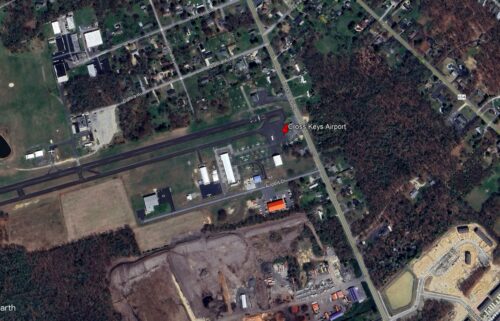Mechanics inspire Missouri bill to bar work on cars with expired temporary tags

By St. Louis Post-Dispatch via My Courier-Tribune
JEFFERSON CITY — After hearing from frustrated mechanics forced to work on vehicles with expired tags, a Florissant lawmaker has a new idea: only allowing repairs on properly registered vehicles.
“In our area, now, they don’t even bother to get temporary tags. They just drive around with no license plates,” state Rep. Gretchen Bangert, D-Florissant, said in an interview.
Though her measure would currently bar repairs for vehicles with regular license plates that are expired, Bangert said she is “going after” temporary tag abuse.
“That’s what I’ve heard from some of the mechanics in my area — that they are frustrated that they’re having to work on vehicles that have expired tags, that are, you know, several years old or have absolutely no tags at all,” she said.
Bangert’s proposal is one of several aimed at addressing expired temporary tags, which legislators and law enforcement view as a problem because it shows that sales tax has not yet been paid on the vehicle.
Another measure, by Rep. Brad Pollitt, R-Sedalia, would allow officers to stop someone solely to determine if their temporary tags are current.
Bangert’s proposal hasn’t been referred to a committee, but House Speaker Dean Plocher referred Pollitt’s on Thursday to the House General Laws Committee.
Two additional bills that haven’t been referred to a committee — introduced by Reps. Michael O’Donnell, R-south St. Louis County, and Marlene Terry, D-Bellefontaine Neighbors — would allow the state to create payment plans for unpaid vehicle sales taxes.
In Missouri, instead of collecting sales taxes at the dealership, motorists are required to pay it at a state license office within 30 days to officially register the vehicle.
To obtain a new regular license plate, motorists must provide proof of insurance, a safety inspection (for certain aging vehicles), an emissions inspection (for the city of St. Louis and St. Louis, St. Charles and Jefferson counties), a personal property tax receipt for the previous year (or statement of non-assessment), as well as titling documents.
Motorists are also on the hook for a 4.225% state sales tax, local sales taxes, as well as titling, registration and processing fees.
“If they have the temporary tags, they’ve not paid their sales tax on their vehicle,” said Bangert, who is running for the 2nd District seat on the St. Louis County Council.
“If you haven’t paid your sales tax, that money’s not … funneling down into our communities where those funds are needed,” she said.
Lawmakers approved and Gov. Mike Parson signed a new law last year for car dealerships to collect sales taxes. The law will allow dealers to include the tax in car payments.
But dealers aren’t scheduled to begin collecting sales tax until July 2026, said Anne Marie Moy, spokeswoman for the Missouri Department of Revenue.
Bangert’s measure wouldn’t stop mechanics from working on cars to meet the safety inspection requirements required to register a vehicle.
Taxes and enforcement
Almost all vehicle owners interviewed by the Post-Dispatch for a July article said the high sales tax rate and all-at-once payments kept them from getting plates. Sales taxes can add thousands of dollars to a vehicle’s purchase price.
“The sales tax is high. I mean, there’s no ifs, ands and buts about it,” Rep. Raychel Proudie, a Democrat who represents Ferguson, where police last year launched a special enforcement program targeting expired temporary tags, previously told the Post-Dispatch.
Law enforcement in Jefferson County, south of St. Louis, has also stepped-up enforcement.
Jefferson County Sheriff Dave Marshak said that on Feb. 2, a vehicle registration task force made up of the sheriff’s department, eight municipalities and the Missouri State Highway Patrol kicked off efforts.
That day, the task force made a total of 656 vehicle stops and issued 286 citations for expired plates, Marshak said.
Officials also gave 356 warnings, wrote 80 tickets for insurance violations and seized 57 plates that were either not on the correct vehicle, or that were expired tags, he said.
“Primarily I think we’re seeing people who will go out and purchase a $100,000 vehicle, a $100,000 truck, and then intentionally not pay their sales tax,” he said, and that they would rather “take their chances and pay a fine here and there.”
In conjunction with the enforcement effort, the county also launched an amnesty program, Marshak said, “because it’s really about compliance, not you know, generating revenue, as some would have you believe.”
He added that authorities were “looking at the most egregious violations” and that, “we’re not talking about somebody that’s a couple of days or a couple of weeks expired, because we understand life happens.”
5-year tags
The state requires motorists who have already licensed their vehicles and paid sales tax to renew their vehicle registration every one to two years.
To do that, motorists need to provide proof that they’ve paid their personal property tax for the previous year; proof of insurance; record of a valid safety and emissions inspection, if applicable; and registration and processing fees that exceed $114 for a two-year tag for passenger vehicles with 72 horsepower and higher.
Registration fees go toward state highway funds, with three-quarters distributed to the state, 15% for cities and 10% for counties. Processing fees go to privately contracted license offices.
One measure, by Rep. Bob Bromley, R-Carl Junction, would introduce a five-year tag option for vehicles fewer than five years old.
“Most people keep vehicles longer than, you know, one or two years,” Bromley said. “It’s just something I felt like was a convenient option.”
The legislation is House Bill 1507, House Bill 1754, House Bill 1643, House Bill 2085 and House Bill 2096.



